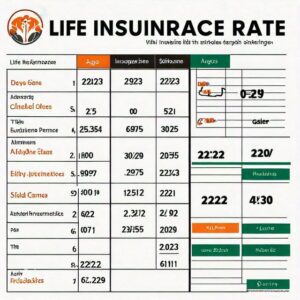1. Introduction: What Are Search terms for Remote Work Resumes?
Remote work is no longer a specialty opportunity; it’s become a key element of the contemporary workforce. Since 2020 the change towards remote positions has only accelerated making it critical for job seekers to understand how to customize their resumes for this landscape. The secret ingredient? Strategic resume keywords. These particular conditions or phrases assist applicants to stand out to both hiring agents and Applicant Tracking Structures (ATS) increasing their chances of landing interviews for remote positions. When applying for remote jobs including the correct search terms on your resume can create a globe of difference. It’s not just about listing skills; it’s about matching the language hiring agents use. By doing so you ensure that your resume not only captures their focus but also aligns with the standards used by hiring software. Let’s explore why search terms are a game-changer for remote job seekers and how you can utilize them to your advantage.
2. Why Remote Work Resume Search terms Are Essential
Most businesses currently utilize ATS to handle the surge of applications for each job posting. These structures examine resumes for particular search terms that align with the job description. If your resume doesn’t contain the correct conditions it might never create it to a recruiter’s desk—even if you’re the ideal candidate. Think of Acts as a gatekeeper sorting applications based on significance before a human ever sees them. So why are search terms so crucial? Here’s how they help:
- Higher Visibility in Ats: By incorporating pertinent search terms your resume is more likely to level superior in the ATS database giving you a superior opportunity to catch a recruiter’s eye.
- Showcasing Alignment: Using search terms from the job explanation shows that you’ve taken the duration to customize your resume to the job which can indicate an authentic curiosity in the position.
- Efficiency for Recruiters: Hiring agents can quickly determine if you own the required skills and experience when your resume highlights search terms that match with the job’s foundation responsibilities.
3. Best 5 Perks of Using Remote Work Search Terms on Your Resume
Including the correct search terms on your resume can reveal numerous advantages making it easier for hiring agents to view your value. Here are five key benefits:
- Increase Chances of Landing an Interview: The more closely your resume matches the job explanation the superior your chances of passing through the first screening stage and securing an interview.
- Tailor Resumes for Particular Job Roles: By using role-specific search terms you can customize your resume for distinct positions making you a more appealing applicant for a range of remote jobs.
- Stand Out from the Competition: In an aggressive job industry having a well-optimized resume can set you apart from others with comparable credentials but less customized applications.
- Align with Job Descriptions: When you mirror the language used in job posts it helps bosses quickly view that you own the skills they’re looking for.
- Improve Clarity and Relevance: Using evident particular conditions makes your resume easier to peruse ensuring that key details don’t get lost in an ocean of unclear language.
4. How to Effectively Utilize Remote Work Search Terms in Your Resume
Using search terms effectively isn’t about stuffing as many as possible into your resume—it’s about thoughtful positioning and relevance. Here’s a step-by-step guide:
- Researching and Selecting the Correct Keywords: Start by analyzing job posts for positions you’re interested in. Look for frequently mentioned skills software instruments and phrases like “remote work” or “work from home.” Produce a list of these terms.
- Placement of Search Terms in Job Titles Skills and Experience: Integrate search terms naturally into your job title descriptions of your duties and the skills section. For illustration instead of just listing “Project Manager ” utilize “Remote Project Manager” if applicable.
- Avoid Keyword Stuffing: Overloading your resume with search terms can make it sound automated and may raise red flags for both Ats and recruiters. Aim for an organic flow, using each keyword about 3-4 times throughout your resume.
5. Remote Work for Students: Crafting a Resume for Flexible Positions
For students remote work proposals are an excellent way to acquire experience and earn a salary without needing to relocate. Here’s how to construct a resume that stands out for part-time or freelance remote roles:
- Key Skills Students Should Highlight: Highlight skills like duration management digital interaction and self-discipline. These attributes are critical for remote work and can assist show potential bosses that you’re prepared for the responsibility.
- Recommended Search Terms for Part-time and Freelance Remote Work: Include conditions like “remote internship ” “freelance writing ” “virtual assistant ” or “online tutoring” based on the category of job you’re pursuing. Focus on skills that match the job such as “Zoom skills” “content creation ” or “remote client service.”
6. Best Remote Work Search terms and Synonyms You Should Know
Understanding the jargon hiring agents utilize is key. Here are some usual search terms and their synonyms that can assist your resume get noticed:
- Remote Work Terms: “Telecommute ” “virtual role ” “work-from-home ” and “distributed team.”
- Skills-Based Terms: “Digital partnership ” “self-starter ” “cloud-based instruments ” and “virtual project management.”
- Technology-Specific Keywords: If you have experience with instruments like Slack Trello or Zoom state these as they’re often required for remote roles.
7. Case Studies: Successful Resumes for Remote Job Seekers
Real-life examples can be incredibly useful in understanding how to enhance your resume. Let’s look at a few resumes that used search terms effectively:
- Example 1: An applicant applying for a remote client service job used phrases like “remote client support” and “virtual communication” throughout their resume. The result? Their submission made it to previous Ats and into the hands of recruiters.
- Example 2: A marketing expert looking for a telecommuting job incorporated search terms such as “digital marketing ” “remote campaign management ” and “SEO tools.” Their customized approach helped them land interviews at numerous companies.
These examples show the strength of targeted search terms and how strategic positioning can create a significant difference.

8. Conclusion: Prospects Patterns in Remote Work and Resume Improvement
The prospects of remote work are promising and so are the chances for job seekers who understand how to enhance their resumes. As more businesses embrace flexible work arrangements, fresh skills, and search terms will continue to emerge. Staying updated with patterns in digital partnership instruments remote management methods and gentle skills like flexibility will keep you competitive. The way we look for jobs is evolving and so should the way we present our skills. Embrace these approaches to construct a resume that not only meets today’s standards but also anticipates tomorrow’s needs.
Call to Activity
Prepared to overhaul your resume for remote opportunities? Start by reviewing your current resume and identifying fields for keyword optimization. Need more personalized advice? Drop a remark below, and let’s get your resume prepared for the remote work revolution!

The Best Gaming Laptops to Buy Right Now: Comprehensive 2024 Guide
Discover the best gaming laptops in 2024, from budget-friendly options to premium picks, with our complete guide covering key features, ...

Understanding Life Insurance Rate Charts by Age: What You Need to Know
This blog post explores the importance of life insurance rate charts by age, highlighting their benefits and providing practical tips ...

Top Smart Rings of 2024: Features, Benefits, and Future Trends in Wearable Tech
Discover the top smart rings of 2024, including the Oura Ring, Ultrahuman, and RingConn, and see how wearable tech is ...

Top 10 Budget Gaming Smartphones Under $1000: Ultimate Power
Discover the ultimate list of the top 10 gaming smartphones under $1000. Detailed reviews, specs, and comparisons to help you ...

The Best Gaming Laptops to Buy Right Now: Comprehensive 2024 Guide

Understanding Life Insurance Rate Charts by Age: What You Need to Know

Top Smart Rings of 2024: Features, Benefits, and Future Trends in Wearable Tech




